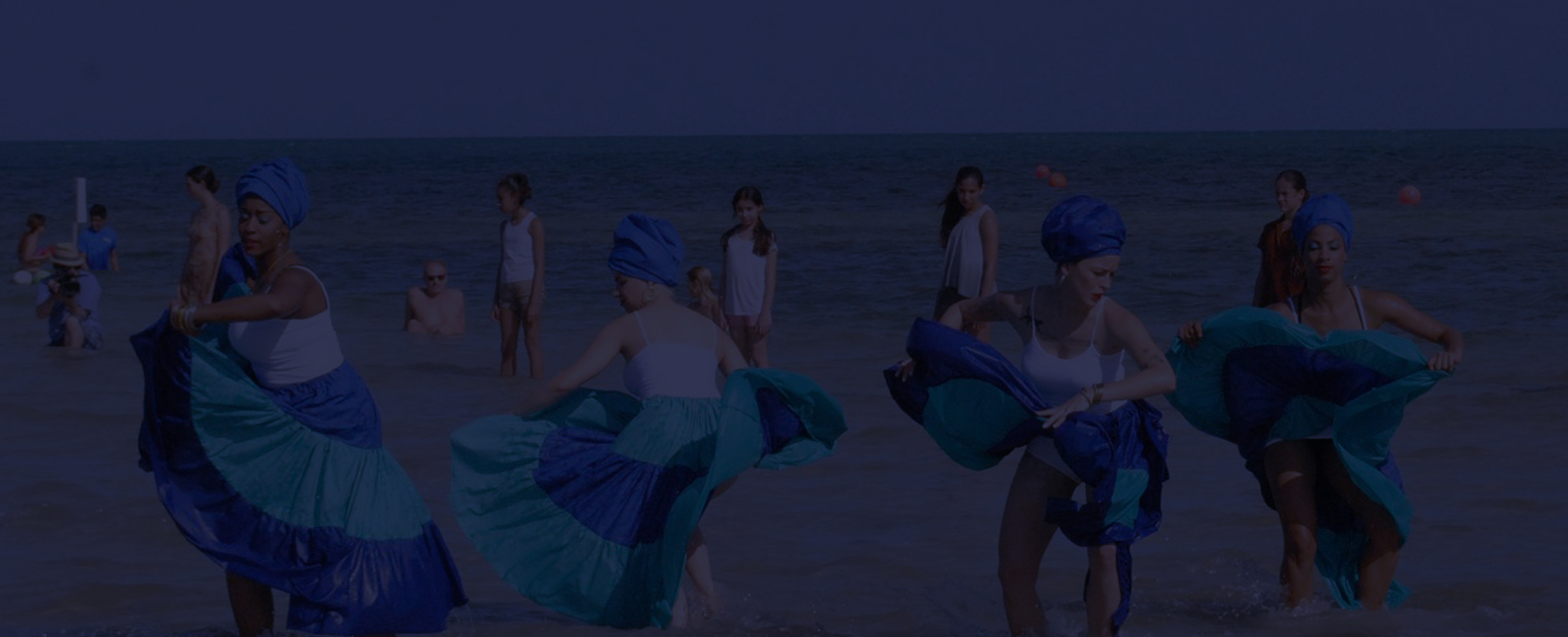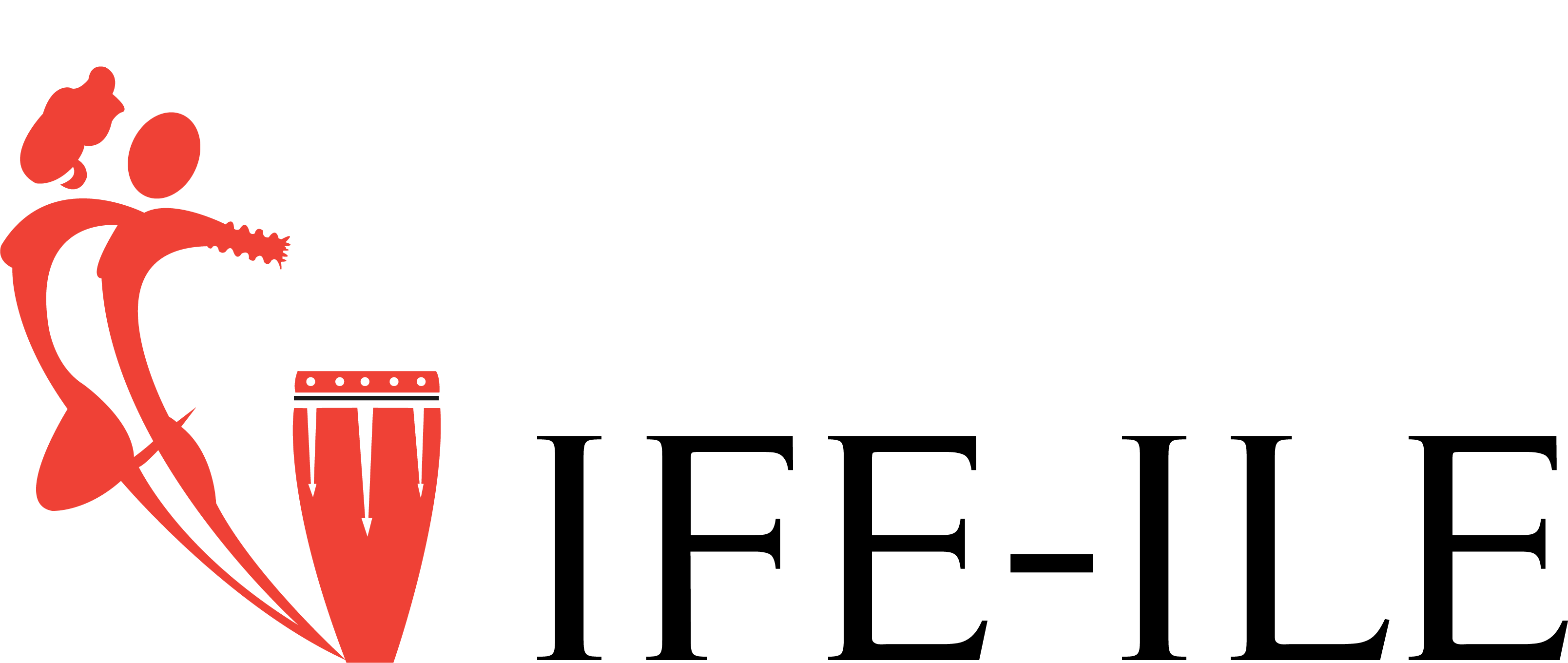
Festival
The festival, created in 1997 by the director of the company Neri Torres, is a strategic and necessary space to promote dialogue between Afro-Cuban dances and those similar embodied expressions that thrive outside formal or conceptual dance. In the age of diversity, equity, and inclusion, it is important to highlight the sense of belonging, pride and joy dances from the people of the Diaspora bring to our communities. Recognizing the many roots and routes of immigrant populations in Miami, the festival program also celebrates the interdependency of cultural traits among and between Cubans, Latin-Americans, Anglo-Americans, Europeans and other peoples of Caribbean and African origins.
Every year, practitioners, culture lovers, scholars and people from all walks of life hailing from as far away as Japan, Canada, California, Belgium, Spain, Chicago, Boston, New York City, Atlanta and Washington, DC meet not only to dance, but to reflect on issues related to the current state of dance and culture in our society. In addition, the festival offers a wide variety of exciting workshops in Afro-Cuban traditions along with diverse guest dance styles, dance parties, panels and performances featuring local and guest artists.


IFE-ILE Afro-Cuban Dance Festival
The Joy of Dancing: The Embodiment of Freedom
Dates: August 8th to 10th, 2024.
Venues: HistoryMiami Museum (lecture-demonstration) 101 W Flagler St, Miami, FL 33130
Koubek Center (workshops, performance, and closing party) 2705 SW 3rd St, Miami, FL 33135
Pre-opening events at Calle Ocho (August 2nd) 1637 SW 8th St, Miami, FL 33135
The conference segment of our festival will include:
– Discussion panels
– Keynote speeches by renowned scholars and practitioners
– Performances
– Final focus group
– Panel Discussion
– Live and virtual Presentations
– Closing Party
For more information
Contact:
Neri Torres,
Conference organizer
Email:ifeiledancecompany@yahoo.com
Dance Workshop Descriptions
Afro-Modern – Dance technique combining Afro-Cuban based dance movements with modern technique, influenced by Graham, Limon, Humphrey and Limon.
Orishas – Sacred African dances originated in Nigeria’s Yoruba traditions- the root of many Cuban popular styles. Dances for Orishas such as Yemaya, Eleggua, Ochun, Oya, etc. represent omnipresent and anthropomorphous forces of nature
Rumba is an autochthonous Cuban dance and music genre that has influenced several other styles, such as Son and the derivative Salsa. Afro-Cuban rumba is entirely different from ballroom rumba or the African style of pop music called rumba, although both draw their inspiration from it. Rumba developed in rural Cuba and is very much alive in Havana, Matanzas, and other Cuban cities and rural areas. And in all rumba, the clave beat (2-3 or 3-2) plays a very important role. Rumba has three styles: Yambu, Guaguanco and Columbia.
Arará – From the Fon people and the Arara kingdom of the Dahomean region, now known as Benin, Arará rhythms, songs and dances were introduced into Cuba, where many rituals and ceremonies are still practiced. One of this style’s main characteristics is the upper spine’s percussive use.
Congo – or Palo traditions come from the Bantú people of Central Africa (particularly from Congo). The Bantú represent the majority of African slaves coming into Cuba during the 17th and early 18th centuries; later, the Yoruba (from Nigeria) became the primary group brought to Cuba as slaves. Drums and hand rattles are used in this music, which is based upon communication with ancestral spirits, the dead, as opposed to the Orishas. The songs and chants, often in a hybrid combination of Spanish and Bantú words, play a central role in the rituals of Palo. Music of this tradition has strongly influenced popular music forms like Rumba, Son and Mambo. It has three distinctive styles: Yuka, Palo and Makuta.
Cubaton – From the combination of the words Raggaeton and Cuba, this style develop from a fusion of Reggae, Dancehall, Latin Rap and Hip-hop, European club music and Cuban rhythms and culture. Cubaton provoked a music revolution because it has been embraced by the Cuban youth who favored it over Cuban traditional styles (Son, Mambo, Cha-cha-cha, etc.). Among the most popular Cubaton bands is Gente de Zona known as pioneering with popular bands such as Charanga Habanera to create the exciting sound blending Cuban Son and Timba with the style. The dance focuses on erotic and sensual pulsations of the pelvis accompanied by the torso in addition to other body isolations, plus a mix of traditional Afro-Cuban dance and hip-hop moves.
Conga (Cuban comparsa) is the ultimate dance of the street carnival — and is more commonly known as a conga line in the US. It is loud, flashy and fun, with dancers in colorful and flamboyant attire and musicians playing horns (trumpets, trombones, tubas, etc.), percussion instruments (maracas, bongos, congas, guiros, batas, claves, checkeres, surdos, tamborines) and whistles. In a comparsa some people hold farolas, large and elaborately decorated processional items on long sticks that are usually carried at the front of the parade and twirled or spun by their carriers, in time to the music.
Guest Workshops
Capoeira Angola is an art form that combines dance movements, fighting techniques, and acrobatics with instrumentation and call-and-response songs. It is a cultural gem that has been preserved, transformed and reemerged through the experience of slavery. It is commonly defined as an Afro-Brazilian martial art/dance.
The Flamenco Body – This workshop aims to simultaneously address the body within the flamenco aesthetic and the body of song forms and how they are engaged. Students will consider how weight is carried, rhythmic understandings of basic forms in relation to body percussion, and what exactly it is we listen for to enter call and response sequences in flamenco. The workshop is based on an engagement with flamenco as a rooted form with multiple historical and cultural origins, allowing students to experience the complexities of this art form while finding a place from which to experience the art form’s essence: self-expression and healing in community. No prior experience necessary. Students can wear flamenco shoes or sneakers depending on their experience level and comfort.
Festival prices
General Registration
$150
Early registration (until July 1st) – $200 regular price (Includes access to all events, workshops and performances)
Workshops Only
$150
Single Workshop
Discount packages
$100
Friday
Performance Only
$30
Saturday
Official Hotel Grove 27 by Roami – 1710 SW 27th Ave, Miami, FL 33145


